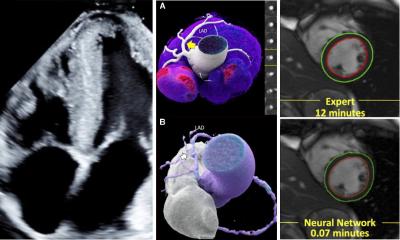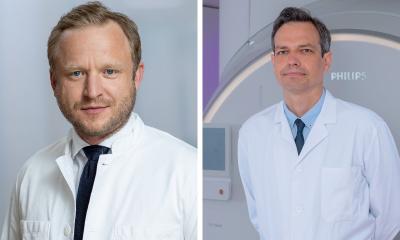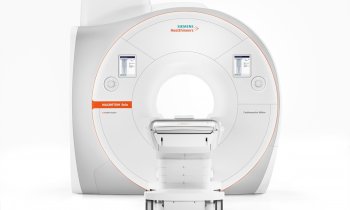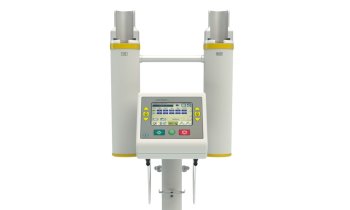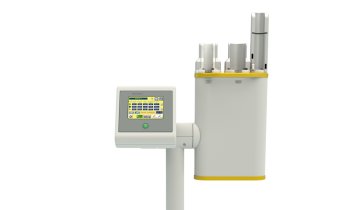© Nitiphol – stock.adobe.com
News • Cardiovascular magnetic resonance
Non-invasive MRI technique to predict heart failure risk
MRI scans could replace invasive heart tests, as new research shows they can reliably estimate pressures inside the heart to predict if a patient will develop heart failure.
The research from the University of East Anglia (UEA) and Queen Mary University of London also identified key risk factors for increased pressure inside the heart, which leads to heart failure. These risk factors include being over 70, having high blood pressure, being obese, alcohol consumption and being male. Results were published in European Society of Cardiology Heart Failure.

Image credit: UEA/Pankaj Garg
Co-lead author Dr Pankaj Garg, from UEA’s Norwich Medical School, said: “Heart failure is a lethal condition resulting from rising pressures. One of the most significant findings of this study is that MRI-derived pressure measurements can reliably predict if an individual will develop heart failure. “This breakthrough suggests that heart MRI could potentially replace invasive diagnostic tests. Participants with higher heart pressure measured by MRI had a fivefold increased risk of developing heart failure over six years.”
Previous research involving UEA, and the universities of Sheffield and Leeds has shown that heart MRI techniques can estimate pressure in the heart and are linked to symptoms and signs of heart failure. However, to date it remained unknown if heart MRI derived pressures can predict heart failure risk in a general population.
Analysing data from more than 39,000 UK Biobank participants, this latest research demonstrates that MRI-detected pressure changes can identify heart failure risk without invasive procedures. Co-lead author Dr Nay Aung, from the William Harvey Research Institute at Queen Mary University of London, said: “Additionally, we identified key risk factors for developing high heart pressure: age over 70, high blood pressure, obesity, alcohol consumption and male gender. By combining these factors, we developed a model to predict individual heart failure risk. This advancement enables prevention, early detection and treatment of heart failure, which could save many lives.”
Recommended article

News • Improved detection of heart failure
New MRI model for better imaging of women's hearts
Researchers have been able to fine-tune how magnetic resonance imaging (MRI) is used to detect heart failure in women’s hearts, making it more accurate for female patients.
A heart MRI is a type of scan that uses powerful magnets and radio waves to create detailed images of the heart. Unlike X-rays or CT scans, it does not use harmful radiation. In this research work, both teams analysed heart MRI data from 39,000 UK biobank participants using artificial intelligence techniques and estimated the pressure inside the heart. They then evaluated each individual’s risk factors and their chance of developing heart failure in the future over a six-year follow-up period.
The research was co-led by the University of East Anglia in partnership with Queen Mary University of London. Other contributions were made by St Bartholomew’s Hospital in London, Norfolk and Norwich University Hospitals, the universities of Leeds and Sheffield, Health Data Research UK and the Alan Turing Institute. UK Biobank is a large-scale biomedical database and research resource containing de-identified genetic, lifestyle and health information and biological samples from half a million UK participants. The work was supported by the National Institute for Health and Care Research (NIHR) and the Wellcome Trust.
Source: University of East Anglia
13.08.2024



